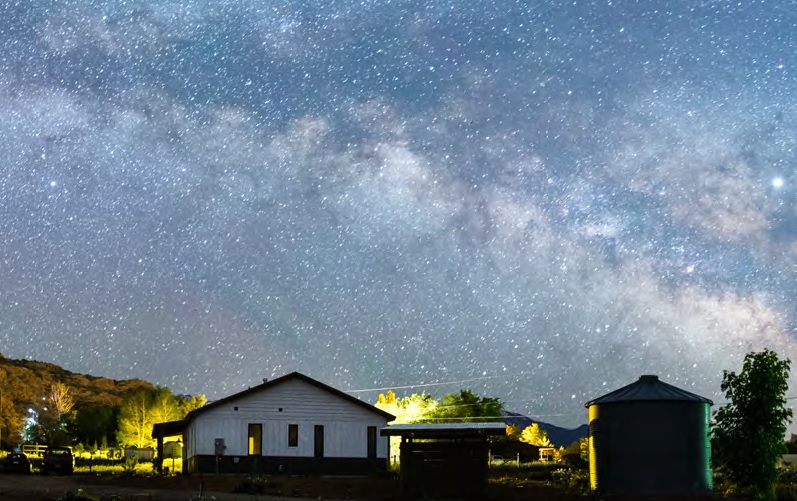September At Home Quest-Dark Skies!
According to the International Dark-Sky Association, light pollution is defined as, “any adverse or unintended effect of the use of artificial light at night, including sky glow, glare, light trespass, light clutter, decreased visibility at night, and energy waste.” Light pollution has detrimental consequences on biodiversity and the environment, and also on people! Everyone enjoys seeing the stars, and light pollution often makes this difficult or impossible in densely populated areas. There are many ways you can help to cut down on light pollution, including using shielded lighting fixtures, installing timers, dimmers, or motion sensors on your lights, using low wattage LED bulbs, and using lights on the warm end of the color spectrum. For 5000 points for Nature Swap this month, take a walk around your home, and identify up to 3 ways you can help cut down on light pollution. This can be as simple as changing the type of light bulb you use, or making sure your lights are off at night! Send your ideas to natureswap@rwpzoo.org. For more information on protecting our night skies, check out DarkSky International | Protecting the night skies for present and future generations.
